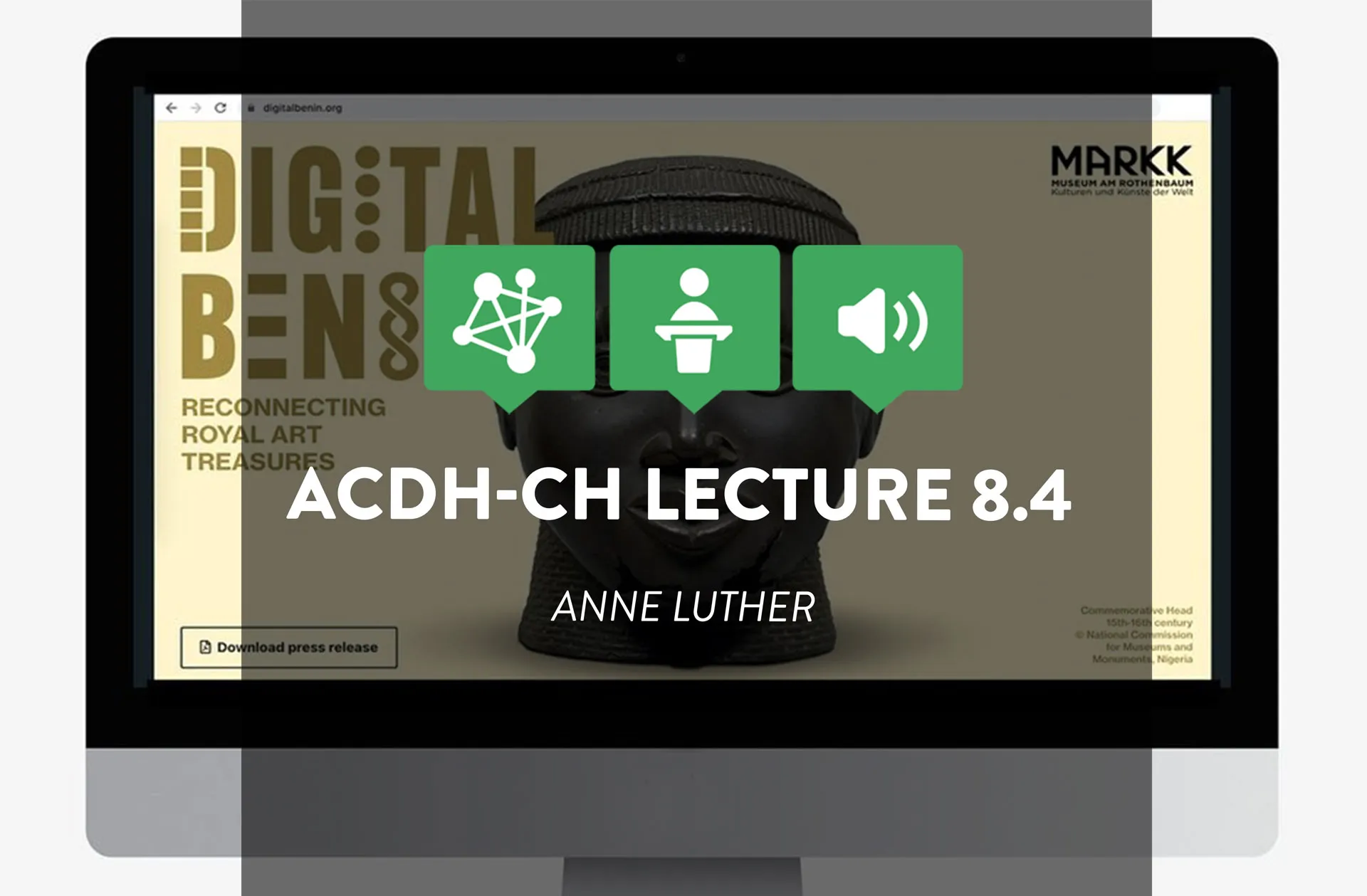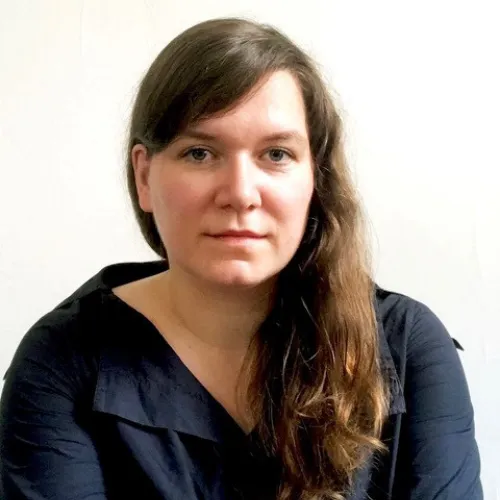
ACDH-CH Lecture 8.4 - Contextualizing Museum Data: Digitization, Infrastructure and digital Literacy
When: Dec 13, 2022, 16:00 (CET)
Where: hybrid
Seminarraum 1, Campus Akademie, Bäckerstraße 13, 1010 Vienna & Online via Zoom

Anne Luther
Founder, Institute for Digital Heritage
Contextualizing Museum Data: Digitization, Infrastructure and digital Literacy
The lecture focuses on three main processes that are important to contextualize when exploring digital material in and from museums:
Digitization: A brief introduction on the social localities of data production, a brief history of digitization and an introduction to roles that interact with data in the museum context shows the consequent data diversity in the museum space. Infrastructure for data storage, management and publishing cultural heritage data is a second context for differing standards, structures and systems. In order to decipher and comprehend digital material in the context of museums this lecture will argue that a human machine interaction depends on a field specific digital literacy.
The contextualization will give an overview of the various forms, formats and processes of digital material in museums and opens an awareness of possibilities to work with data. Dr. Luther will show her current project Digital Benin as a tangible example of a unique digital project that brings together information about objects from over 120 museums world wide.
Please RSVP for the onsite-lecture / register for the online-lecture.
This lecture is presented in cooperation with University for Continuing Education Krems, Center for Image Science.
Links
Anne Luther
Dr. Anne Luther is a specialist for digital heritage and a digital humanities scholar. Her work applies technology, design and humanities research for the interaction, exploration and opening of cultural heritage preserved and represented in digital data. She is the founder of The Institute for Digital Heritage and Principal Investigator for Digital Benin, leading the development of a digital platform which brings together rich documentation from collections worldwide to provide a long-requested overview of the royal artworks looted in the 19th century from the Kingdom of Benin.
She holds a PhD from Central Saint Martins College of Art and Design, London, where she developed a pioneering interactive data visualization software for qualitative research. Between 2013 and 2015 she brought a research focus in data driven humanities research to the Parsons Institute for Information Mapping and between 2015 and 2018, she established an emphasis on the analysis of museum data, leading data sprints, workshops, international research collaborations and software development as research coordinator at the Center for Data Arts at Parsons School of Design in New York. She is Andrew W. Mellon Fellow for 2021-22 at the Price Lab for Digital Humanities at UPenn and served in the program committee of INFO+ 2021.
She secured grants for the Museum am Rothenbaum, MARKK by the Ernst von Siemens Kunststiftung, Chair of Modern Art History at TU Berlin by the VW Foundation and Fordham University by the NEH amongst others. She taught Art Theory as a TA for Professor Boris Groys at NYU between 2014 and 2017 and translated his book Logic of the Collection published with MIT Press/Sternberg Press (2021). She worked in several arts institutions internationally including MoMA PS1, House of World Cultures, Front Desk Apparatus and for Antonia Josten Art World Recruitment.
She was selected as an expert on Digitization, digitization strategies and digital collection management for the MuseumsLab, a platform for joint learning, exchange and continuing education regarding the future of museums in Africa and Germany, financed by the German Federal Foreign Office in close cooperation with the African consultancy group The Advisors. She was invited to present and consult on digital strategies in museums, team management in digital projects and data-driven research by the German Federal Cultural Foundation, the German Museum Federation and RUSTlab at Ruhr University Bochum among others.